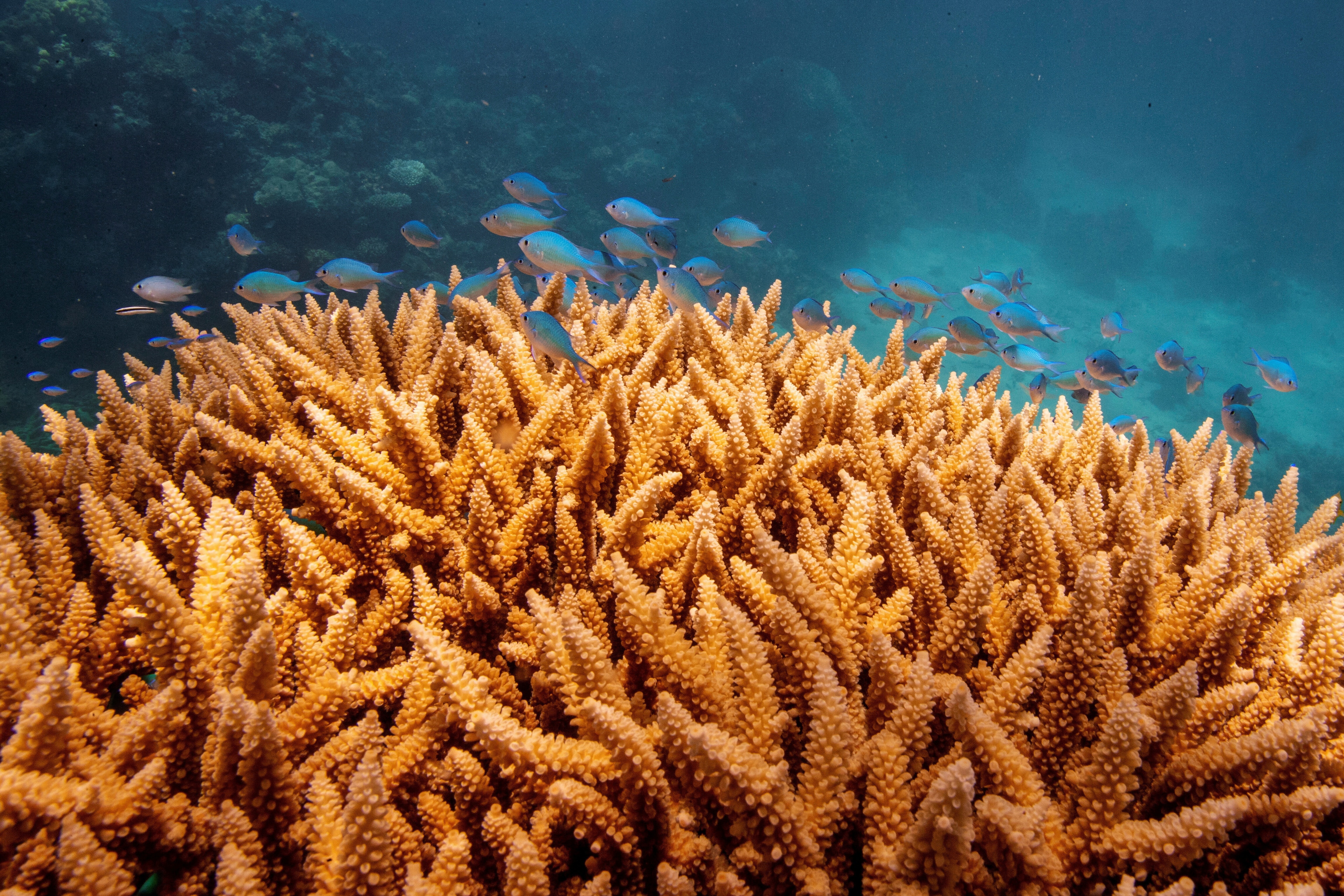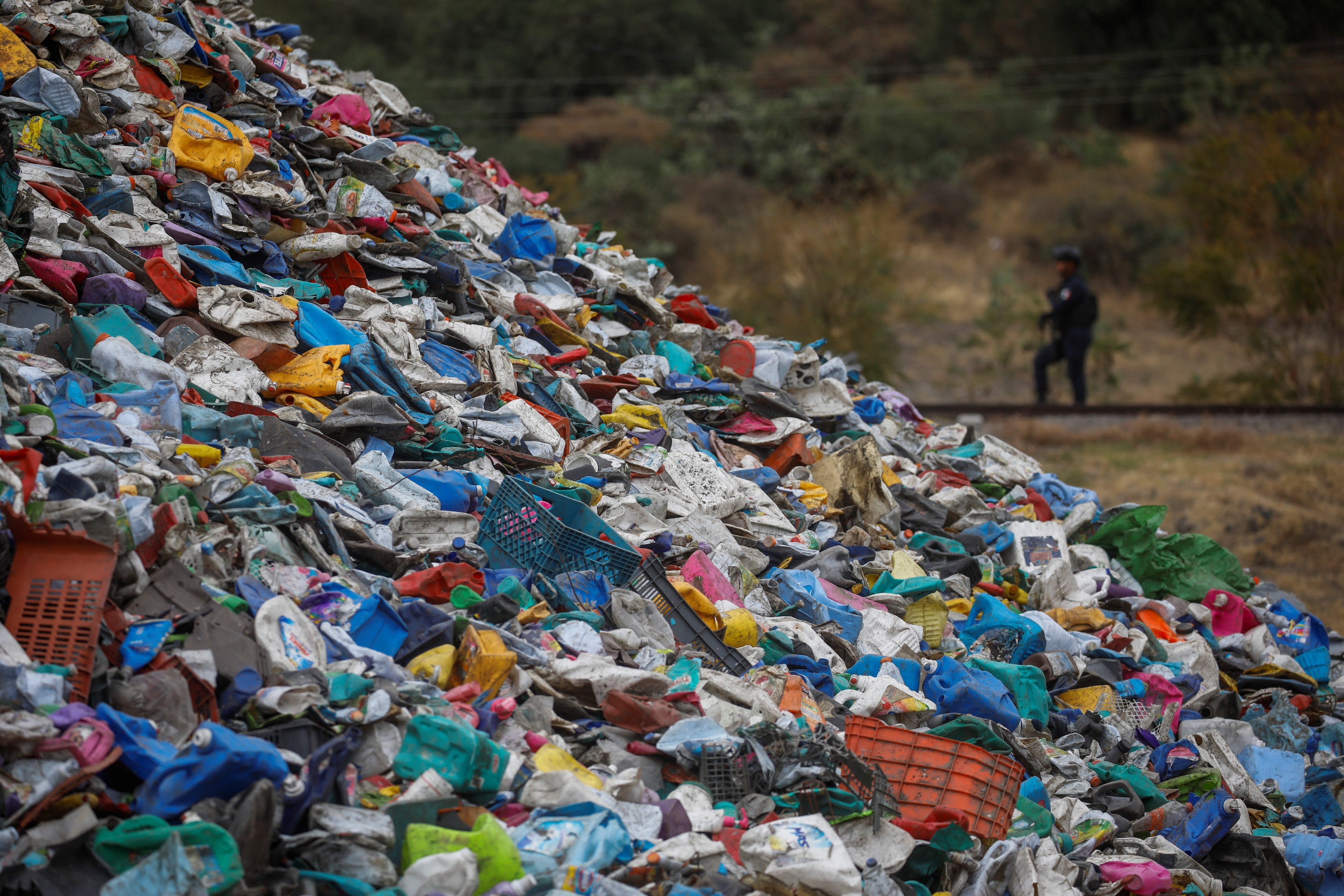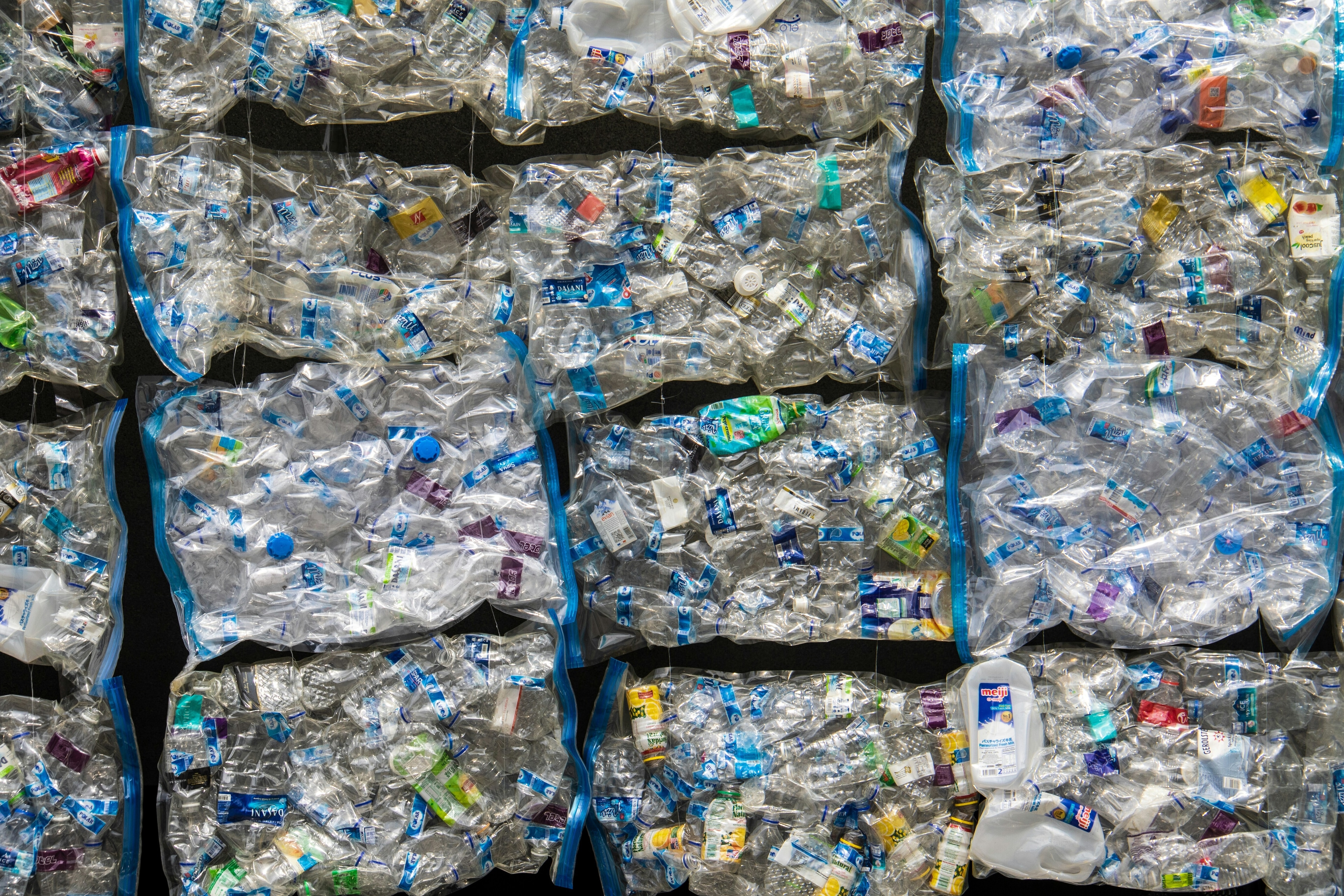Here's how female-led initiatives are tackling plastic waste in Zimbabwe and Malawi

Women in Zimbabwe and Malawi are collecting plastic waste from dumpsites and communities, and reselling it to recycling companies.
Image: Pixabay/mauriceangres
Stay up to date:
Plastic Pollution
- Women in Zimbabwe and Malawi are taking action to tackle the plastic waste crisis.
- They are collecting plastic waste from dumpsites and communities and reselling it to recycling companies.
- This is helping to reduce plastic pollution and create jobs for women.
- The government needs to do more to support these initiatives and implement regulations to reduce plastic waste.
On a roadside in the Glen View suburb of Harare, Barbara Tiki has got to work removing stickers from assorted plastic containers and bottles.
The spot beside Willowvale Road in Zimbabwe’s capital has been the work station for Tiki and six other women, all clad in orange and blue work suits branded Zero Waste, since 2021.
Tiki, 57, recalls that when they started, the women would wake early in the morning to collect plastic waste from dumpsites across the city. Nowadays, people from Harare’s communities bring the plastic waste to Willowvale Road for the women to buy and resell to recycling companies.
It has become a hive of activity with heaps of sacks filled with different sizes and colours of plastic materials awaiting collection by individuals and companies in the city’s growing recycling business.
Making a living
“We know we are doing something to reduce waste in our communities but at the same time trying to eke out a living as the majority of us are widows, divorced and single mothers”, explains one member of the initiative, Patience Mangove, 53.
As they busy themselves with their daily work, the women discuss what they are going to spend their money on after sales.
Mangove told China Dialogue that the price of plastic waste varies by type. For example, the women pay US$0.15 per kg of polypropylene products, and $0.20 per kg for PET (polyethylene terephthalate), which is used for drinks bottles.
The women can then sell the plastic at $0.40 and $0.45 per kg respectively.
They were trained as part of the Zimbabwe Sunshine Group (ZSG) where they learned to select and grade plastic waste. ZSG itself was established by the Harare City Council and the Zimbabwe Environmental Management Agency (EMA).
“As Zero Waste we have seen increasing number of people, including children, who bring various plastic containers for us to buy,” explains Jane Chichewo, 53.
“So apart from helping people in our communities to earn an income, this has also helped the people to practice a culture of keeping their surrounding clean by not throwing reusable waste anywhere,” she explained.
What is the World Economic Forum doing about plastic pollution?
Tackling plastic pollution in Zimbabwe
According to the EMA, solid waste management remains one of the most pressing environmental challenges for the country. Approximately 1.65 million tonnes of waste are produced annually in Zimbabwe, with plastic making up 18% of that.
“Plastic can take thousands of years to decompose… and, relatively, little is recycled. Globally, 79% ends up in landfills or the natural environment,” EMA spokesperson Amkela Sidange explains via email, adding that 47% of the plastic waste generated globally has only been used once.
In 2010, Zimbabwe banned plastic bags less than 30 microns thick, though some food packaging, such as for bread, was exempt. Use of the banned bags carries a hefty fine of US$5,000 or a one-year jail sentence. And, according to a report by Joseline Wadzanai Chitotombe, the ban triggered a large decline in use of the flimsy bags.
A tax levy was also applied to other, thicker, plastic bags. However, consumers got used to this and continued using them. Chitotombe’s report concluded that regulation alone has not done much to curb litter problems.

There are other laws and policies designed to clean up plastic pollution in the country, explains a report by the Zimbabwe Environmental Law Association. ZELA in particular highlighted the Zimbabwe Integrated Solid Waste Management Plan, which it notes envisages “a safe, secure and sustainable solid waste management system that [will] transform Zimbabwe into a clean, healthy and environmentally friendly country”.
EMA further suggests growing the recycling industry, and ensuring different kinds of waste are segregated across the country. The agency observes that there are only few recycling enterprises in Zimbabwe, and there is need to promote the industry and raise awareness.
The policies and laws are a step in the right direction, but plastic waste is still increasing nationally. A lack of capacity and resources on the part of EMA, as well as a lack of research on the impact of technological innovation, have proven obstacles to implementing effective measures. A 2022 report on the country’s waste-management policies, by researchers at the University of Johannesburg, found progress was being held up by inadequate data and stakeholder coordination.
EMA spokesperson Amkela Sidange believes responsibility lies with both retailers and consumers.
“Our call as the Environmental Management Agency is for retailers to adopt non-plastic shopping bags or other biodegradable alternatives… Consumers are also encouraged to adopt the same alternatives because it is everyone’s responsibility to protect the environment,” she told China Dialogue.
“Upholding our right to live in a clean, safe and healthy environment comes with responsibility.”
A regional problem
Zimbabwe is not alone on the African continent in the battle against plastic pollution. Fellow southern African country Malawi has also banned certain plastics. The ban, which arrived in 2015, covers plastic bags and sheets less than 60 microns thick. However, according to Clement Tikiwa, chief environmental officer at Malawi’s Environmental Affairs Department, numerous court injunctions by plastic manufacturers are preventing the government from fully implementing it on certain products. In addition, commonly used plastics, such as in food packaging, medicines, and waste storage, are exempt.
Plastics make up roughly 8.5% of waste generated in Malawi, according to a 2019 report by the Lilongwe Wildlife Trust.
The report notes that waste collection rates in Malawi are about 42%, while only about 4% of waste is recycled by municipalities. Meanwhile, in Malawi’s urban areas, more than 280,000 tonnes of solid waste goes uncollected each year.
“There is need for awareness at each stage and political will is also very important,” said Clement Tikiwa, chief environmental officer at the Environmental Affairs Department.
At the grassroots level, Malawi is seeing the emergence of projects similar to Barbara Tiki’s Zero Waste. Samantha Ludick and a group of 15 villagers from the Salima district on the shores of Lake Malawi established Cool Projects in 2004. They collect plastic waste from communities and run a swap shop. People from various villages swap plastic papers or bottles for cloths, educational supplies, sweets and other goodies. They also sell plastic for recycling and train young people with the skills to upcycle waste and start their own projects.
Recycling rates in sub-Saharan Africa are very low compared to internationally, standing at just 4%. Moreover, across the continent, there is a lack of knowledge about waste recycling and associated opportunities. Due to most recycling systems being informal, there are no accurate estimates of how much waste is being recycled.
A global crisis
Plastic pollution affects every corner of the globe. Global plastics production and waste both doubled in the first two decades of this century and continue to grow, according to the OECD. Globally, only 9% of plastic gets recycled, while 19% gets incinerated, 50% buried in landfills, and 22% disposed of via uncontrolled methods such as dumpsites and open pits.
From 29 May to 2 June this year, delegates from 170 countries met in Paris to discuss establishing a UN treaty to end plastic pollution, which many hope will be the most important international environmental deal since the Paris climate agreement. Delegates set a deadline to produce a first draft of the treaty in advance of their next meeting in Nairobi this November, the first step on the way to signing a legally binding treaty by the end of 2024.
Grassroots and government
Back at the local level, Barbara Tiki and her colleagues are setting a precedent.
“The results of the impact of our work is there, but we continue to aim higher,” she says.
“We are aspiring to buy our own land and grinding machinery in an endeavour to grow in this industry.”
Similarly, in Malawi, Ludick is looking to expand the Cool Projects initiative into smelting plastic waste into bricks for housing construction. “This will help stop the use of sand for mortar, mud for bricks and timber for firing the bricks,” she says.
Some reports have pointed out the potential dangers of plastic reycling, such as fires in recyling facilities and inadequate environmental, health and worker protections.
Tikiwa from Malawi’s Environmental Affairs Department says governments need to step up their role too.
“Government should promote recycling programmes, facilitate and conduct clean-up campaigns in schools, markets… cities and district councils across the country”, he said.
Government also needs to promote segregation of plastic waste by establishing transfer stations that would in turn create opportunities for vulnerable groups and develop or construct plastic waste storage-disposal facilities.
In Zimbabwe, ZELA argues that underlying all these efforts is the need to build up institutional capacity to implement and enforce plastic pollution and recycling regulation.
Don't miss any update on this topic
Create a free account and access your personalized content collection with our latest publications and analyses.
License and Republishing
World Economic Forum articles may be republished in accordance with the Creative Commons Attribution-NonCommercial-NoDerivatives 4.0 International Public License, and in accordance with our Terms of Use.
The views expressed in this article are those of the author alone and not the World Economic Forum.
Forum Stories newsletter
Bringing you weekly curated insights and analysis on the global issues that matter.
More on Nature and BiodiversitySee all
Tom Crowfoot
August 12, 2025
Pedro Gomez and Clemence Schmid
August 6, 2025
Tom Crowfoot
August 5, 2025


